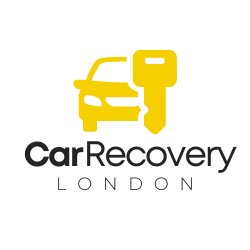Blog
Blog
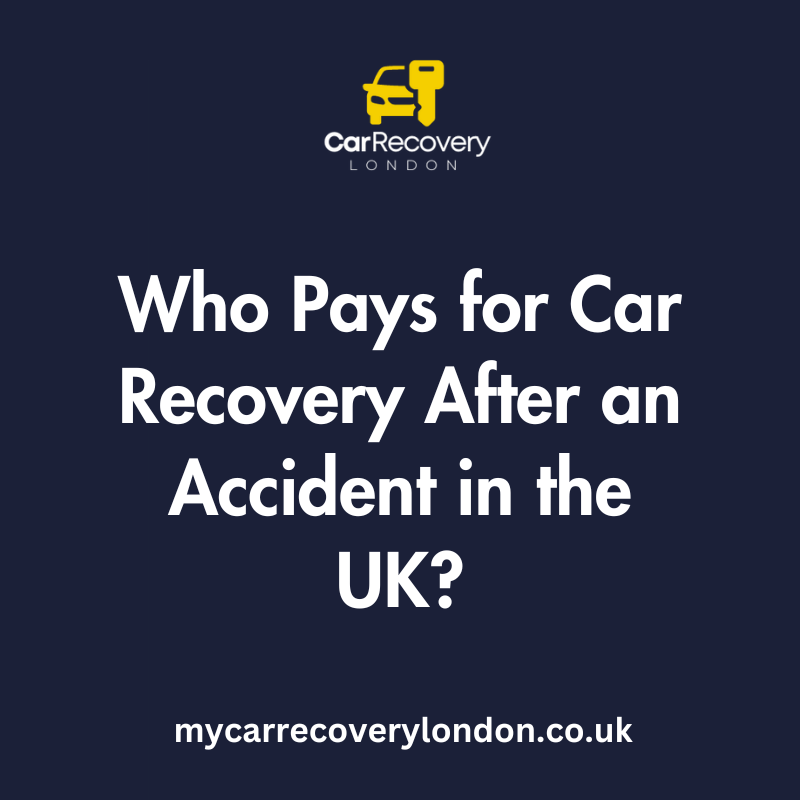
by Tom Riley
•
01 Apr, 2024
If you've been involved in a car accident, one of the immediate concerns is how to safely recover your vehicle from the scene. But who is responsible for covering the costs of this recovery process? In this article, we'll provide a clear answer to this question and explore the various factors that can influence who pays for car recovery after an accident in the UK. The short answer: Who pays for car recovery after an accident in the UK largely depends on your insurance coverage and who is found to be at fault. Comprehensive insurance policies typically include vehicle recovery, while third-party policies may not. By understanding your insurance cover and the claims process, you can ensure that you're prepared for the costs associated with recovering your vehicle after an accident. Factors That Determine Who Pays for Car Recovery 1. Insurance Coverage The primary factor that determines who pays for car recovery is your insurance coverage. If you have comprehensive insurance, your policy will likely include provisions for vehicle recovery after an accident. This means that your insurer will arrange for your car to be towed to a garage or a safe location and cover the associated costs. On the other hand, if you only have third-party insurance, you may be responsible for arranging and paying for the recovery of your vehicle. Third-party insurance typically does not include cover for vehicle recovery or repairs to your own car. 2. Fault Determination Another critical factor is who is deemed to be at fault for the accident. If another driver is found to be entirely at fault, their insurance company may be responsible for covering the costs of recovering your vehicle. In such cases, you may need to provide evidence of the other driver's negligence, such as witness statements or dashcam footage. However, if you are found to be at fault or partially at fault for the accident, you may be required to pay your insurance excess before your insurer covers the remaining costs of vehicle recovery. 3. Roadside Assistance Cover Some car insurance policies include roadside assistance cover, which can be helpful in the event of an accident. If you have this type of cover, your insurer may arrange for your vehicle to be recovered and cover the costs, even if the accident was your fault. It's essential to check the specific terms and conditions of your roadside assistance cover to understand what is included. 4. Location and Circumstances The location and circumstances of the accident can also impact who pays for car recovery. If your vehicle is in a dangerous position or obstructing traffic, the police or local authorities may arrange for it to be moved to a safe location. In such cases, you may be responsible for paying the recovery costs, although you can often claim these back from your insurer if you have comprehensive coverage. Claiming for Car Recovery Costs If you need to claim for car recovery costs after an accident, it's crucial to: - Contact your insurer as soon as possible to report the accident and discuss your recovery options. - Provide any necessary evidence, such as photos of the damage and the other driver's details, to support your claim. - Keep receipts for any recovery costs you incur, as you may need these to claim reimbursement from your insurer.
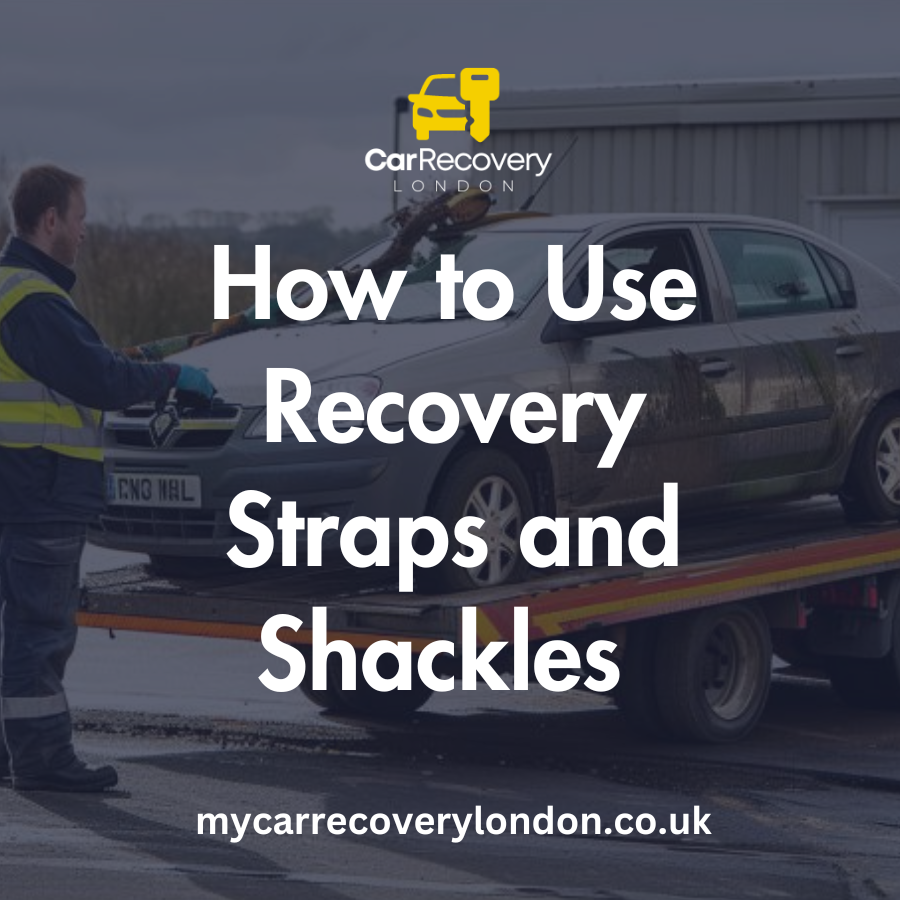
by Tom Riley
•
25 Feb, 2024
Recovery Strap and Shackle Usage Guide Recovery straps are indispensable tools for off-roading, designed to extract vehicles stuck in mud, sand, or snow. Constructed from durable nylon webbing, these straps feature tow hooks for secure attachment to a vehicle's frame or axle, facilitating safe and effective vehicle recovery. Types of Recovery Straps Snatch Straps Snatch straps are made from flat nylon webbing with loops at each end for attachment. They can stretch up to 20% of their length, storing kinetic energy to aid in vehicle extraction. Kinetic Recovery Ropes Kinetic recovery ropes, similar in material to snatch straps, stretch up to 30% and are used for generating a more powerful pulling force. They are typically used in pairs for balanced recovery efforts. Tow Straps vs. Recovery Straps Tow straps, designed for rigid towing on highways, differ from car recovery straps in their lack of elasticity. Using tow straps for off-road recovery is unsafe and not recommended. Understanding Shackles Shackles, metal loops used for attaching recovery straps to vehicles, are crucial for a secure recovery setup. They come in flat and bow varieties, with bow shackles being the preferred choice for their strength and compatibility with vehicle recovery. Safe Recovery Operation Steps Preparation: Ensure you have the correct recovery gear, including rated shackles and a secondary vehicle for pulling. Visibility: Make the recovery operation visible to oncoming traffic to prevent accidents. Inspection: Check the recovery gear for any damage and ensure it's suitable for the vehicle's weight. Attachment: Securely attach the recovery strap to the vehicles using the rated shackles, avoiding any parts not designed for towing or recovery. Best Practices for Recovery Maintain clear communication between drivers. Use the correct attachment points on the vehicles. Do not exceed the gear's rated capacity. Consider aftermarket recovery points and recovery tracks for enhanced safety and efficiency. Aftermarket Shackles for Enhanced Performance Aftermarket shackles made from 7075 billet aluminum offer superior performance by stretching under load, reducing the risk of snap-back. These shackles are designed for ease of use and stability during recovery operations. Conclusion: Prioritizing Safety Using recovery straps and shackles safely requires understanding their mechanics, choosing the right type for the situation, and following best practices. With the right tools and knowledge, off-road enthusiasts can navigate challenging terrains confidently and safely.
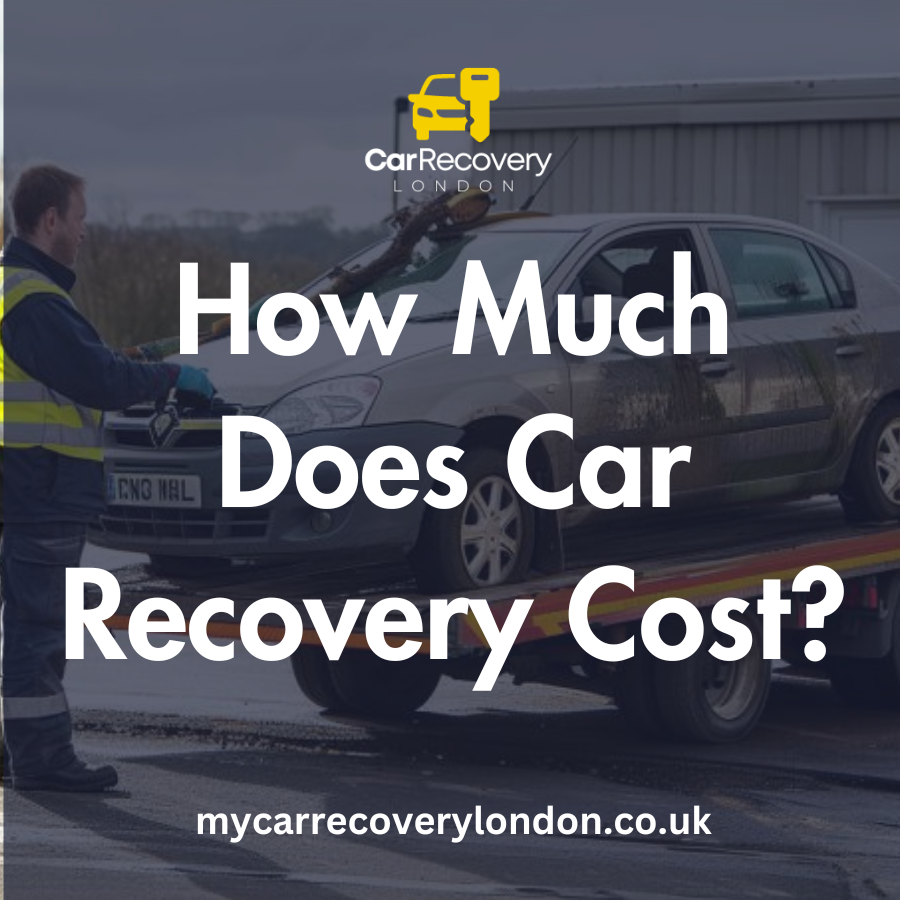
by Tom Riley
•
23 Feb, 2024
How Much Does Car Recovery Cost? If your reading this we're guessing you've broke down. If your car breaks down and cannot be fixed at the roadside, you'll likely need a recovery service to transport you car either to your home or to a garage (prefrance is yours). The average cost of car recovery in the UK is £75-£150 for the call-out and towing fee. You'll also pay a mileage fee, usually around £1.50 per mile. In this blog post, we'll cover: Cost breakdown of car recovery services Factors that affect the price Tips to get the best deal
MENU
GET IN TOUCH
23TM
Unit 3A
B34-35 Hatton Garden
Holborn
London
EC1N 8DX
020 805 00607
Stay Connected
Join our newsletter and find out more.
Contact us
Thank you for contacting us.
We will get back to you as soon as possible
We will get back to you as soon as possible
Uh oh, there was an error sending your message.
Please try again later
Please try again later
